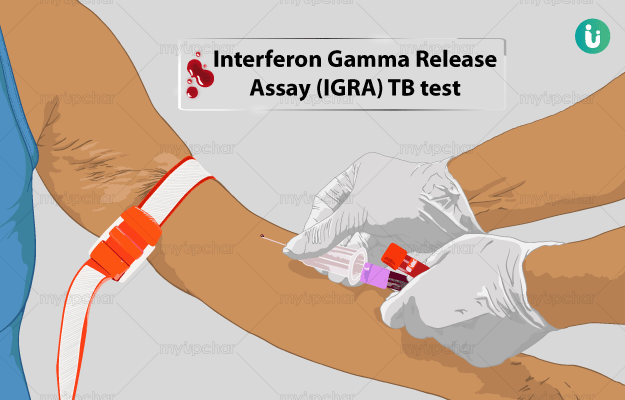What is Interferon Gamma Release Assay (TB-IGRA) Tuberculosis test?
The IGRA-TB is a screening test that determines if a person has TB infection.
TB is an infectious disease caused by a bacteria called Mycobacterium tuberculosis. The bacteria mostly affects lungs but it may also infect other parts of the body. Most people show active symptoms once they get infected; however, in some people, the TB bacteria may become inactive - the condition is called latent TB. A latent infection can turn active at any time.
A type of white blood cells called T cells play a vital role in the immune response of the body against TB. When our body is exposed to TB bacteria, T cells such as CD4 and CD8 release a compound called interferon-gamma (IFN-γ). IFN-γ then activates the immune system to respond against the bacteria.
TB-IGRA test detects the presence of IFN- γ specific to CD4 or CD8 cells in the blood. It helps detect both active and latent TB infections. The test is also used to screen for TB infection in a person who has been given a BCG (Bacille Calmette-Guerin) vaccination against TB.













